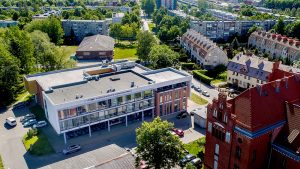
The global LNG and bio-LNG energy landscape is changing – on 29-30 November join the Liquid Energy Conference 2022 to discuss future solutions, policy, and technologies. Event will be streamed online from the HanseMesse, Zur HanseMesse 1-2, 18106 Rostock, Germany.
Nowadays the main activities of the LNG business focus on mega projects and big-scale LNG market and the comparatively diminutive market of micro- and nano-scale bio-LNG doesn’t get much attention. Even if there are many market players, this segment is generally not yet in the focus of the industry participants but taking into consideration the great potential of this market it should be.
The companies approaching the micro-bio-LNG market e.g., in off-grid application, should be prepared to act quickly to benefit from first-mover advantage and prepare a complex strategy underpinned by the appropriate capacities, which include relevant technology and partnerships across the bio-LNG chain. Additionally, the policy should define not only dedicated incentives but also adjust regulations that often create barriers for innovative (non-) technological solutions. Thus, to unlock this market, the change of paradigm in thinking about target groups (end-users), distribution channels and technical solutions is necessary.
New technical solutions are pivotal
A particular technical challenge associated with the energy transition is the storage and distribution of high energy volume, for example in the form of liquid biogas or natural gas (bio-LNG). This is a specific technological issue that the conference will address, creating a space for a discussion about broader and more universal use of liquefied gas bio-LNG in a micro / nano form (e.g. in a decentralised energy supply system) as an alternative fuel in the future. The conference will cover such aspects like inter alia energy storage, logistic chains, policy, and business models.
The conference
The conference features political, commercial, and technical speakers. They will lead the debate and convey their unique perspectives on the state of the LNG and bio-LNG industry, and ambitions for its evolution over the coming decades with the focus on micro- and nano-scale market.
The Liquid Energy project
The Liquid Energy project aims to encourage more widespread use of green technologies to reduce pollution in the Baltic Sea region. It is implemented by 8 partners and 21 associated organizations from Poland, Germany and Lithuania, as part of the Interreg South Baltic Cross-Border Cooperation Program 2014-2020.






